Renting a motorhome is an exciting way to explore the open road while enjoying the comforts of home. Motorhome travel is a fantastic way to explore the world with the comforts of home on wheels. If you’re curious about renting a motorhome, this guide covers everything you need to know—from the basics to advanced tips—presented in a logical sequence to make your journey smooth and enjoyable. Whether you’re planning a weekend getaway or a long-term adventure, finding the perfect motorhome rental is easy when you follow the right steps. This guide will walk you through everything you need to know to rent a motorhome hassle-free.
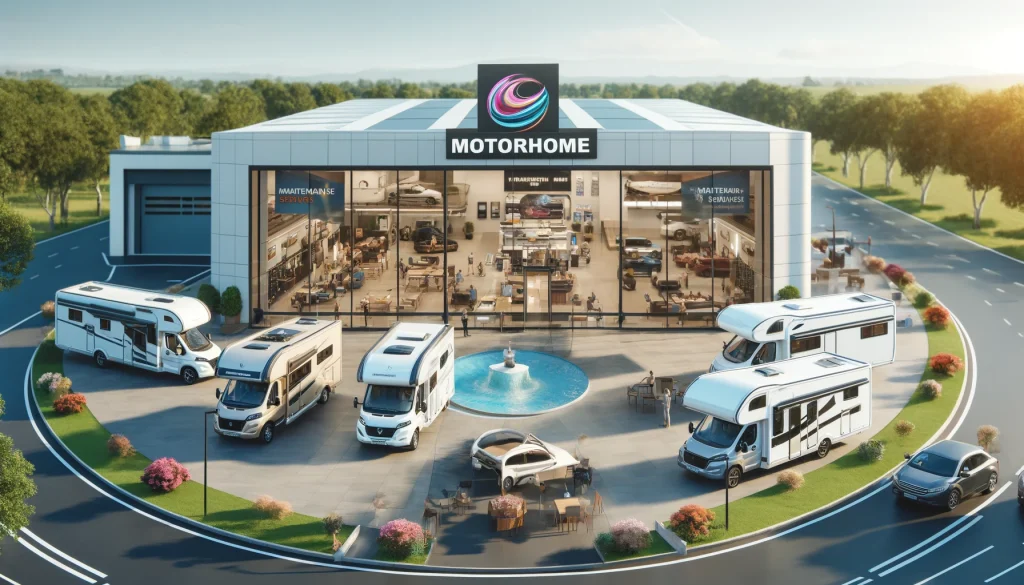
Why Renting a Motorhome is a Great Choice
Motorhomes offer flexibility, comfort, and freedom to travel wherever you please. Unlike hotels or traditional travel methods, motorhome rentals allow you to:
- Enjoy a mobile living space with all amenities.
- Save money on accommodation and dining.
- Customize your itinerary and explore off-the-beaten-path destinations.
Steps to Rent a Motorhome
1. Decide on Your Travel Needs
Before renting a motorhome, consider:
- Group Size: How many people are traveling?
- Trip Duration: Are you planning a short trip or a long journey?
- Amenities: Do you need a fully equipped kitchen, a bathroom, or extra storage?
Knowing these details will help you narrow down your options.
2. Choose the Right Type of Motorhome
Motorhomes come in different types, each catering to specific needs:
- Class A: Spacious and luxurious, ideal for families.
- Class B: Compact and easy to drive, perfect for couples.
- Class C: A balance of space and affordability, great for small groups.
3. Research Rental Companies
Look for reputable motorhome rental companies with positive reviews. Popular options include local rental agencies and platforms like Outdoorsy or RVshare. Compare prices, insurance policies, and customer ratings.
4. Book in Advance
Motorhomes are in high demand, especially during peak travel seasons. Booking early ensures better availability and lower costs.
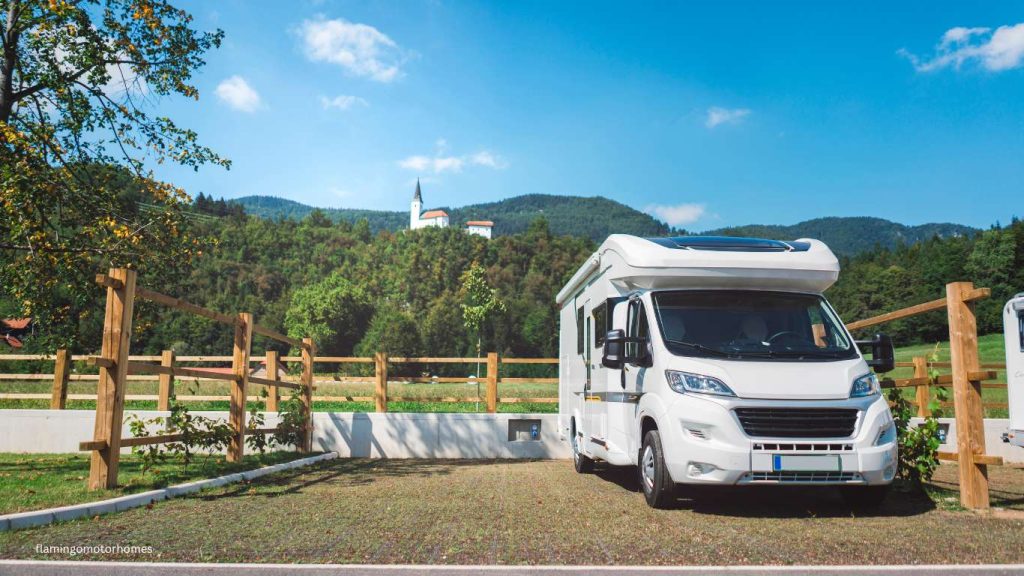
Tips for a Smooth Rental Experience
Understand Rental Policies
Always read the terms and conditions carefully. Check for:
- Mileage limits.
- Cleaning fees.
- Fuel and return policies.
Inspect the Motorhome
Before driving off, inspect the motorhome for any damage and ensure all appliances work properly. Document the condition with photos if necessary.
Practice Driving
Motorhomes are larger than regular vehicles. Take a few practice drives to get comfortable, especially if you’re renting a Class A or Class C motorhome.
What Are the Laws to Rent a Motorhome?
Renting a motorhome is a great way to travel, but it’s essential to understand the legal requirements before hitting the road. Laws for renting and driving a motorhome vary by region, but this guide covers the general rules you need to know to stay compliant and enjoy a smooth trip.
Driver’s License Requirements
1. Standard Driver’s License
In most countries, you only need a standard driver’s license to rent and drive a motorhome. However:
- Some regions have weight or size restrictions for standard licenses.
- Larger motorhomes may require a commercial driver’s license (CDL) or a special permit.
2. International Driver’s License
If you’re renting abroad, check if an International Driving Permit (IDP) is required. This is often necessary in non-English-speaking countries.
Age Restrictions
Most rental companies require drivers to be at least:
- 21 years old for smaller motorhomes.
- 25 years old for larger models.
Some companies may allow younger drivers (18-20) but with higher insurance fees.
Insurance and Liability
1. Rental Insurance
Rental companies usually provide basic insurance coverage, but it’s important to check:
- Collision Damage Waiver (CDW): Covers damages to the vehicle.
- Liability Insurance: Protects you against third-party claims.
2. Personal Insurance
Verify if your personal car insurance or credit card benefits extend to motorhome rentals. If not, consider purchasing additional coverage.
Local Road and Parking Laws
1. Road Regulations
When driving a motorhome, adhere to:
- Speed limits (often lower for larger vehicles).
- Height and weight restrictions on certain roads and bridges.
- Local traffic laws specific to motorhomes.
2. Parking Rules
- Overnight parking is restricted in some areas. Use designated campsites or RV parks.
- Avoid parking on private property without permission.
Rental Agreement Terms
1. Mileage and Usage
Some rentals have mileage limits or restrictions on travel to certain states or countries.
2. Fuel and Cleaning Policies
You’re typically required to return the motorhome with a full fuel tank and clean interior.
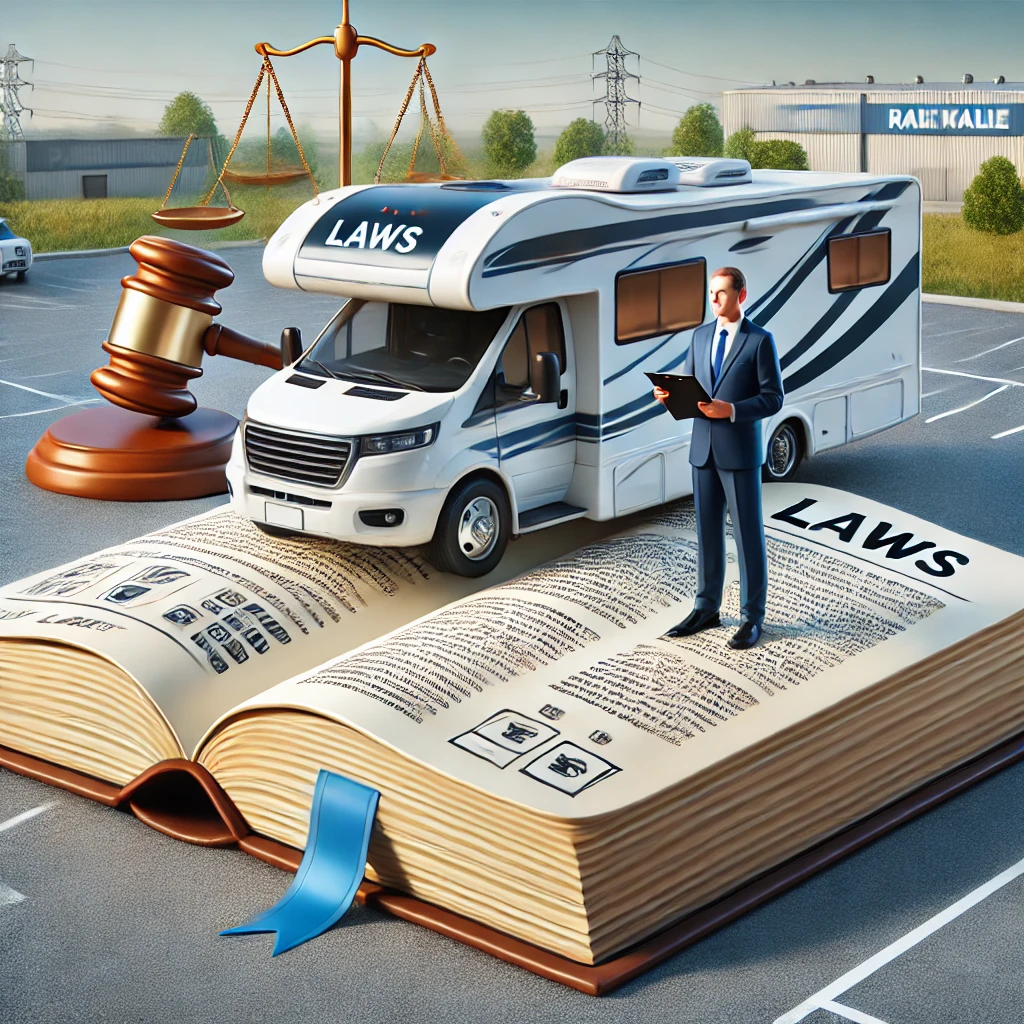
How to Rent a Motorhome as a Beginner: A Complete Guide
Renting a motorhome for the first time can feel overwhelming, but it’s easier than you think! Even if you have no prior experience, this guide will help you get started. By following these steps, you can enjoy the freedom of motorhome travel with confidence.
Why Beginners Should Rent a Motorhome
Renting a motorhome is the perfect way to test the waters before buying one. For first-timers, it offers:
- A chance to experience motorhome life without long-term commitment.
- A flexible and cost-effective travel solution.
- An opportunity to learn about different types of motorhomes.
Steps to Rent a Motorhome for First-Time Travelers
1. Start Small and Simple
If you’re new to motorhomes, start with a smaller model like a Class B campervan. They are easier to drive, park, and handle compared to larger models like Class A motorhomes.
2. Research and Choose the Right Rental Platform
Use beginner-friendly rental platforms like:
- Outdoorsy: Offers insurance and 24/7 roadside assistance.
- RVshare: Features a wide range of options and user-friendly filters.
These platforms connect you with reliable owners and offer helpful reviews.
3. Plan Your Route in Advance
For your first trip, stick to familiar routes or destinations with well-equipped RV parks. Planning ahead helps you feel more prepared and confident.
4. Understand the Basics
Before you hit the road, learn how to:
- Operate essential systems like water, electricity, and waste tanks.
- Drive and park a motorhome safely.
- Perform a basic pre-trip checklist, including tire checks and securing loose items.
Most rental companies or owners will walk you through these steps.
Tips for a Smooth First Motorhome Rental
Choose Rentals with Support Services
Look for motorhomes that come with customer support or roadside assistance. This adds peace of mind during your trip.
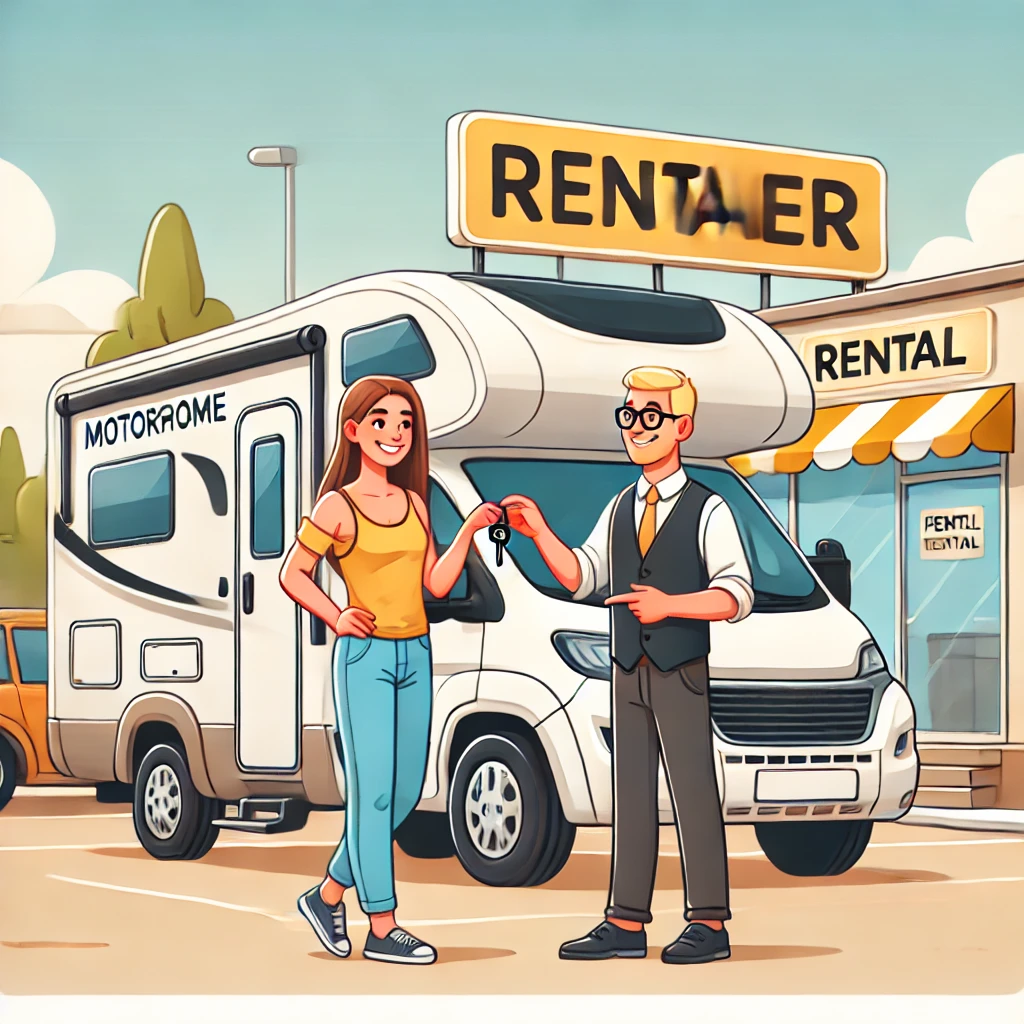
Why Should You Rent Out a Motorhome Instead of Buying It?
Renting a motorhome instead of buying one is a smart choice for many travelers. While owning a motorhome may seem appealing, renting offers significant advantages, especially for those new to RV travel or seeking flexibility. Let’s explore why renting a motorhome is often the better option.
Advantages of Renting a Motorhome
1. Cost-Effective for Occasional Travel
- Lower Upfront Costs: Buying a motorhome involves a significant investment, ranging from $50,000 to over $200,000, whereas renting costs only a fraction of that.
- No Maintenance Expenses: When you rent, you avoid ongoing costs like repairs, storage, and insurance premiums.
2. Try Before You Buy
Renting lets you experience motorhome travel without committing to ownership. It’s perfect for:
- First-time RV travelers.
- Testing different motorhome types (Class A, B, C) to find the best fit.
3. Flexibility in Travel Style
- Rent the right motorhome for each trip. For instance, choose a compact Class B for a solo adventure or a spacious Class A for family vacations.
- Avoid being tied to one vehicle or size.
4. No Long-Term Commitment
Owning a motorhome comes with long-term responsibilities, including maintenance, insurance, and depreciation. Renting eliminates these burdens, allowing you to enjoy hassle-free travel.
Situations Where Renting Is Better
1. Occasional Travelers
If you only take a few trips a year, renting is more practical and economical.
2. Urban Dwellers
For people living in cities with limited parking space, renting avoids the hassle of storing a large vehicle.
3. Varied Travel Plans
Different trips may require different motorhomes. Renting allows you to match the vehicle to the adventure.
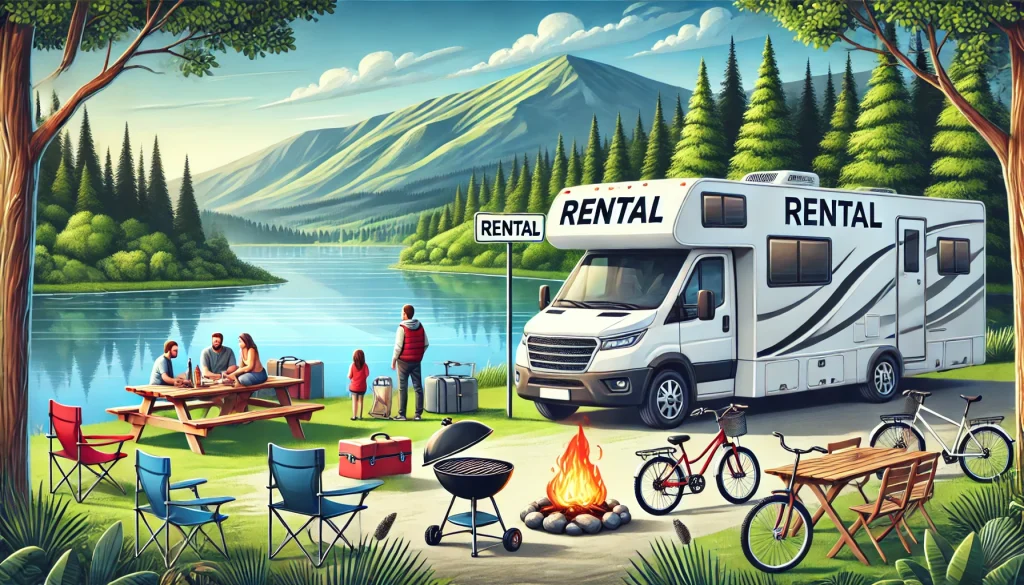
Financial Comparison
| Aspect | Buying a Motorhome | Renting a Motorhome |
|---|---|---|
| Upfront Cost | $50,000 – $200,000+ | $100 – $400/day |
| Annual Maintenance | $1,000 – $5,000 | $0 |
| Storage Costs | $500 – $2,000/year | $0 |
| Insurance | $500 – $2,000/year | Included in rental cost |
| Flexibility | Limited to one vehicle | Rent different models as needed |
How Long Can Renting Last, and How Long Should You Rent Out a Motorhome?
Renting a motorhome is a flexible option for both renters and owners, but understanding the ideal rental duration can maximize the experience. Whether you’re renting a motorhome or renting one out, here’s what you need to know about rental timelines.
How Long Can You Rent a Motorhome?
Motorhome rental durations vary widely based on the renter’s needs and the rental company’s policies. Typical options include:
1. Short-Term Rentals
- Duration: 1-7 days.
- Best For: Weekend getaways, local trips, or trying out a motorhome for the first time.
- Advantages: Affordable and less commitment for beginners.
2. Mid-Term Rentals
- Duration: 1-4 weeks.
- Best For: Family vacations, road trips, or exploring multiple destinations.
- Advantages: Better rental discounts for extended periods.
3. Long-Term Rentals
- Duration: 1-6 months (or more).
- Best For: Long-term travelers, digital nomads, or snowbirds escaping harsh winters.
- Advantages: Lower daily rates and more time to immerse in travel.
How Long Should You Rent Out Your Motorhome?
If you’re renting out your motorhome, choosing the right rental duration depends on your availability, preferences, and income goals.
1. Short-Term Rentals
- Ideal For: Maximizing profits during peak seasons or high-demand weekends.
- Considerations: Frequent turnover requires more maintenance and cleaning.
2. Mid-Term Rentals
- Ideal For: Ensuring consistent bookings while reducing turnover stress.
- Considerations: A balanced option for owners who want steady income without frequent handovers.
3. Long-Term Rentals
- Ideal For: Owners who don’t plan to use their motorhome for months.
- Considerations: Lower turnover but requires a trusted renter due to extended use.
Factors to Consider
For Renters
- Budget: Long-term rentals usually offer better rates.
- Itinerary: Tailor the rental period to your travel plans.
- Flexibility: Choose a duration that allows for unexpected delays or changes.
For Owners
- Availability: Rent out your motorhome during periods you won’t use it.
- Maintenance: Shorter rentals may require more frequent upkeep.
- Rental Policies: Set clear terms for maximum rental periods.

How to Rent Out Different Class Motorhomes or Related Vehicles
Renting out motorhomes or related vehicles, such as campervans and trailers, is a great way to generate income while sharing the joys of RV travel with others. Understanding the different motorhome classes and their pricing structures will help you rent them out effectively.
Types of Motorhomes and Related Vehicles
1. Class A Motorhomes
These are large, luxurious motorhomes with ample living space, making them ideal for families or long-term trips.
2. Class B Motorhomes (Campervans)
Compact and easy to drive, these are perfect for couples or solo travelers who prefer minimalistic travel.
3. Class C Motorhomes
A mid-sized option, combining the comfort of Class A with the maneuverability of Class B.
4. Travel Trailers and Fifth Wheels
Towable options that offer flexibility for travelers who already own a tow vehicle.
Steps to Rent Out Motorhomes
1. Prepare Your Vehicle
- Ensure it is clean, well-maintained, and stocked with essential supplies.
- Check all systems, including plumbing, electricity, and appliances.
2. Choose a Rental Platform
Platforms like Outdoorsy and RVshare connect you with renters and handle bookings, insurance, and payments.
3. Set Pricing and Policies
- Determine daily, weekly, or monthly rental rates.
- Outline terms such as mileage limits, pet policies, and cleaning fees.
4. Market Your Motorhome
- Take high-quality photos and write detailed descriptions.
- Highlight unique features like solar panels, outdoor kitchens, or Wi-Fi.
5. Provide Support to Renters
- Offer a walkthrough to explain the vehicle’s features.
- Be available to answer questions during their trip.
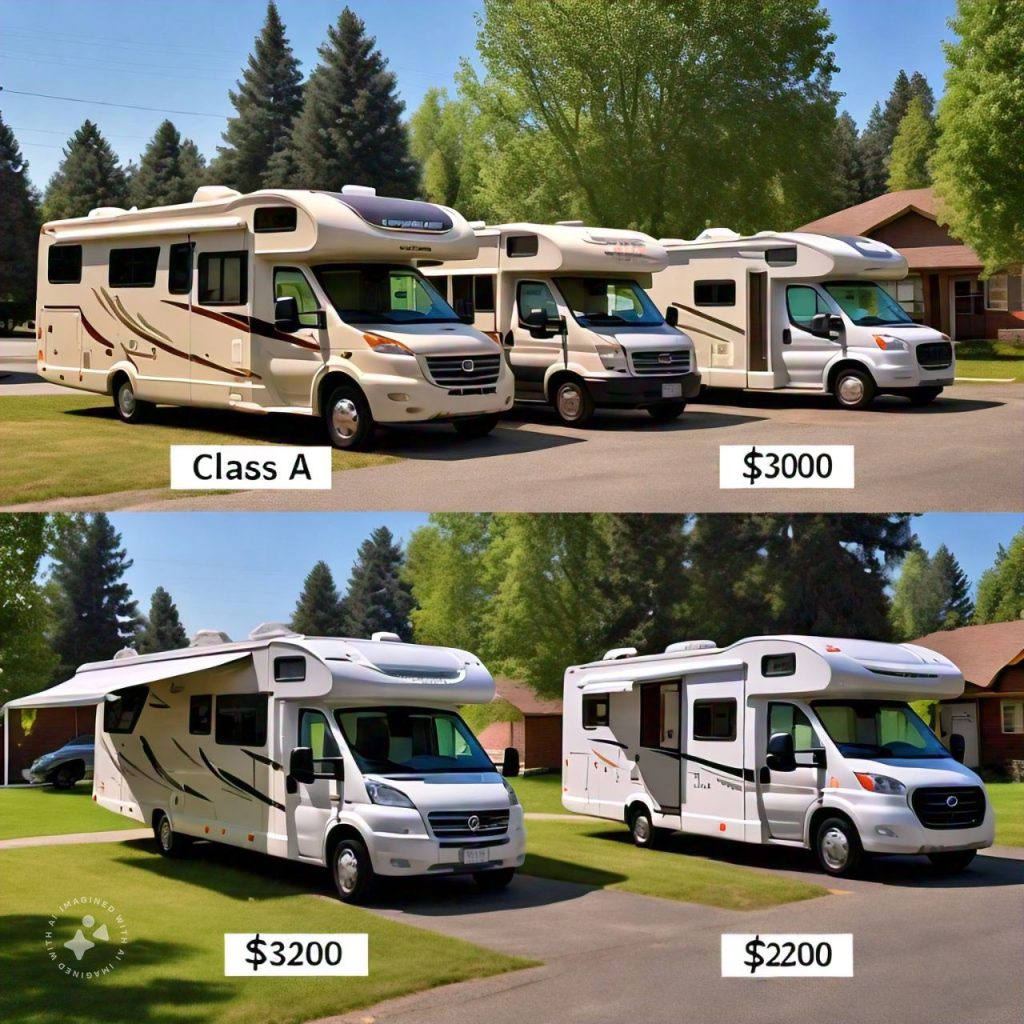
Pricing Table for Renting Motorhomes and Related Vehicles
| Vehicle Type | Daily Rate | Weekly Rate | Monthly Rate |
|---|---|---|---|
| Class A Motorhome | $200 – $400 | $1,200 – $2,500 | $4,500 – $8,000 |
| Class B Motorhome | $100 – $250 | $700 – $1,500 | $2,500 – $4,500 |
| Class C Motorhome | $150 – $300 | $1,000 – $2,000 | $3,500 – $6,000 |
| Travel Trailer | $75 – $150 | $500 – $1,000 | $1,800 – $3,500 |
| Fifth Wheel | $100 – $200 | $600 – $1,200 | $2,000 – $4,000 |
More related information will be available on Flamingo Motorhomes.

